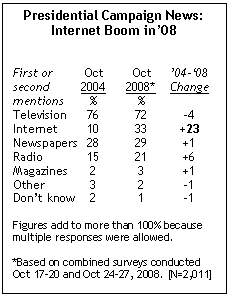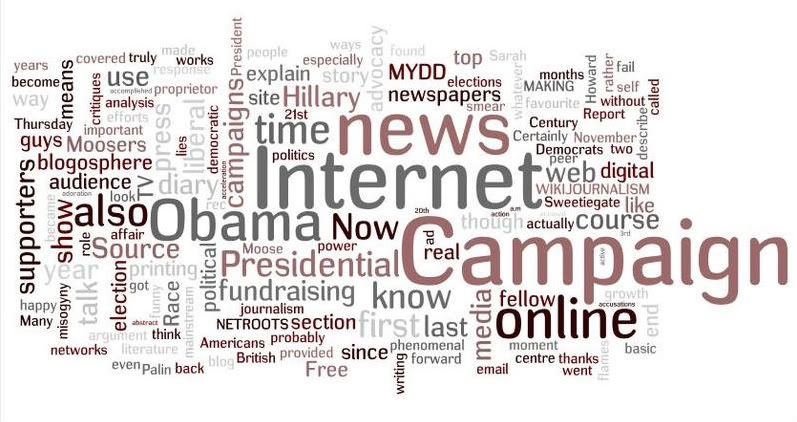This is partly a diary to celebrate the survival of the Moose over the dangerous last few months while Sarah Palin was circling in a helicopter with her telescopic rifle, and also a summary of a talk I will be doing on Thursday November 20th, at a plenary session that will start at about 10 a.m EST and last for an hour and a half.
The Conference is called No Frontiers? Free Speech and the Internet and is hosted by English PEN, the 21st Century Trust, and is being covered by The Guardian in its Comment is Free section. My specific talk is: Crashing The Sweetiegate – how online forums and political advocacy could transform the political sphere
For my fellow Moosers, the title (suggested by the organisers) is self explanatory, and some of you will be familiar with basic argument from my Flaming for Obama piece in Prospect Magazine last month, which drew an unexpectedly benign response from the proprietor of MYDD.
But here I’m inviting you all to show how the liberal blogosphere works, and respond in real time, or whatever time you choose, to the basic points with critiques, thoughts, flames or fail cartoons.
INTRO
On the evening of November 3rd, hours before the first ballot had been counted, Arianna Huffington was willing to declare a winner to the 2008 Presidential Race: the Internet.
From the way campaigns connect to supporters, to the way those campaigns are covered, to the way voters decide who to vote for, 2008 has delivered the first truly 21st century presidential race. And election night promises to fortify the Internet’s victory.
As the founder of an online news service to rival the Drudge Report, Arianna Huffington is no disinterested party, though her her assertion is borne out by the Pew Research Centre: The Internet Now Major Source of Campaign News

Many more Americans are turning to the internet for campaign news this year as the web becomes a key source of election news. Television remains the dominant source, but the percent who say they get most of their campaign news from the internet has tripled since October 2004 (from 10% then to 33% now).
While use of the web has seen considerable growth, the percentage of Americans relying on TV and newspapers for campaign news has remained relatively flat since 2004. The internet now rivals newspapers as a main source for campaign news
And not only campaign news, thanks to the Obama campaign’s phenomenal use of peer to peer networks and fundraising models, the internet has not only transformed journalism but campaign fundraising. As Mark McKinnon, a senior adviser to President Bush’s campaigns in 2000 and 2004, has said:
“I think we’ll be analyzing this election for years as a seminal, transformative race. The year campaigns leveraged the Internet in ways never imagined. The year we went to warp speed. The year the paradigm got turned upside down and truly became bottom up instead of top down.”
1. ORIGIN OF THE NETROOTS
I’ll skip this section for my fellow Moosers, since you probably know more about it than I do. Suffice to say the origins can probably be traced to two related phenomena: the arrival of the Drudge Report, and its impact on President Clinton in 1998; and then liberal response to the impeachment proceedings in Moveon.org – originally an email group which soon boomed into an online fundraising vehicle.
I’ll also point out how the Republicans were actually the first to leverage the internet through the email microtargeting in 2000, and then of course, as you all know, how Howard Dean really started energising the Netroots in his 2004 campaign for Presidency. But despite this early efforts, it was the Obama campaign that showed how important online advocacy, fundraising, smear refutation and organisation could be. As Joe Trippi, Howard Deans campaign manager said:
“They were Apollo 11, and we were the Wright Brothers”
Or even better, from chief campaign strategist, Steve Schmidt.
“That means the next Republican presidential campaign… will need to be a billion-dollar affair to challenge what the Democrats have accomplished with the use of the Internet and viral marketing to communicate and raise money.”
In the US, a powerful digital constituency has come to age in the 2008 elections.
2. WIKIJOURNALISM
While you guys are out getting coffee or filing your nails, I’ll also show my British audience a liberal blog in action. No such thing exists this side of the pond, and we associate blogging with online newspapers or bloviating individuals on WordPress. I’ll show them how an online community such as (I’m sorry guys this is a narrative moment) DailyKos works as a form of wikijournalism, as well as introduce them to the time in January 2008 it became a primarily Obama site, and deeply unfriendly to Hillary supporters – a moment of collective madness I know think in retrospect.
I’ll give examples of how important sourcing, updating, and responding to critiques is with my first ever rec list diary about the Tuzla affair, and how I changed it in real time. But I’ll also expand this to analyse how the role of citizen journalism extends to TV too with the famous Jed Report video. Or of course Will.I.Am’s Yes We Can or my personal favourite: The Empire Strikes Barack
About ten years ago Francis Ford Coppola foresaw a time when movies wouldn’t be made by big directors like him, in Hollywood studios, but by some lonely girl in her bedroom in Idaho. This is what’s begun to happen to visual news reporting, thanks to services like YouTube.
Could this be the beginning of what some have called Semiotic Democracy where the means of digital production are held by the many rather than the few? Certainly, a new generation, bought up on Web 2.0 spend more and more time online because of its power of interactivity and social networking, which could bleed over not only how they receive political news, but how they go and make it.
3. THE CIRCULAR FIRING SQUAD
Now I’ll move onto the writer’s strike on DKOS and of course the fun bit – the primary wars on MYDD. You all know the story. Heck you were the story. I discuss how we all went over the top, and the pitfalls of online advocacy, especially with two phenomenal democratic candidates. There will be laughs…
“I found a site dominated by “gates”: Naftagate, Monstergate and Bittergate, but above all Wrightgate… Sometimes the allegations were completely ridiculous: Sweetiegate,” for instance, when Obama was accused of misogyny for calling a reporter “sweetie,” or “Fingergate,” where an odd-angled snapshot made it appear as if he were giving Hillary the finger.
There will also be tears as I describe how often Hillary and Obama supporters misunderstood each other, and how anonymity actually increased the flames, especially with the tense issues of identity politics electrifying the atmosphere, leading to accusations, real or inferred of sexism and racism.
I’ll try to explain to the audience how through this conflicts we learned our logical fallacies by heart, our Postel’s and Godwin’s laws, our false dilemmas, straw men, ad hominems and ad baculums.
I might also relate how I was banned from MYDD as Brit. The came back as Duende, to have my rec and rate powers stripped, then wrote a pro-Clinton diary and was reinstated.
But this section will end on a happy note when I explain the great healing role played by Clintonistas for Obama and people like Atdleft, Sricki and CG.
4. OF TROLLS AND SOCKPUPPETS
Of course no description of the progressive Blogosphere would be complete without a brief foray into the Rankles world of McTrolls, or PUMAs, without Universal and Texas Darlin, and all the various ways genuine democrats fed, fail, and snarked them away.
So please feel free to post below some of your favourite funny dramatic moments.
5. THE MAKING OF THE MOOSE
The story will bring me back here, and I will describe the last phase of the campaign, and the joint efforts that both Hillary and Obama supporters engaged in during those wobbly first few weeks when Sarah Palin was appointed as Vice Presidential nominee.
I’ll explain how, having apparently been discovered by the internet, the liberal blogosphere provided the vetting of Palin’s background in Alaska where the mainstream media initially failed. How it tried to avoid this become more misogyny by blaming McCain for making a reckless, impetuous choice for calculating policy reasons, and how after several months of adoration this meme spread up the mainstream press and TV networks.
6. IN CONCLUSION
OK. I’m British, so I’ve got to end with something pompous, and I want to compare the widespread use of the Internet to Gutenburg’s invention of the printing press, only here the printing press is on everyone’s lap top, and the means of distribution and exchange have been revolutionised aswell.
Modern literature, pamphlet writing, agitation and demands for democratic rights grew out of the dissemination of ideas provided by printing and the growth of literacy. But with digital media and Web 2.0, the discourse and practice of politics has been electrified.
We still don’t know where this wikipolitics will head, and though the Presidential elections had an largely happy ending, there were times when the acceleration of argument and energy felt self destructive.
Certainly mass media lobbying and control, the smears, lies and demographic salami slicing of Rove Morris spin are over. You cannot be all things to all people with fifty different messages now all can be stored online, cross checked and compared. As a result, the old editorial and media centres of power are losing their authority, and with fact checking, smear rebutting, poll analysis etc, we’re all being trained to become active producers of news, meaning and analysis, rather than passive consumers of it.
And this is where I will end this sketch of my talk for this coming Thursday morning. Oddly enough, I’ve found it easier and quicker to write this as a diary, than as some abstract on a word document. Perhaps herein lies the ultimate lesson.
All writing, print, literature is ultimately a dialogue with a reader, and the relative ease with which I an press the ‘publish’ button on a blog increases that sense that this is not some text written in stone, but part of a broader conversation.
So I look forward to the Q&A after my talk. And even more, I look forward to whatever comments, facts, funny videos or pictures you guys have assembled, my fellow Moosers, to show my audience.

17 comments